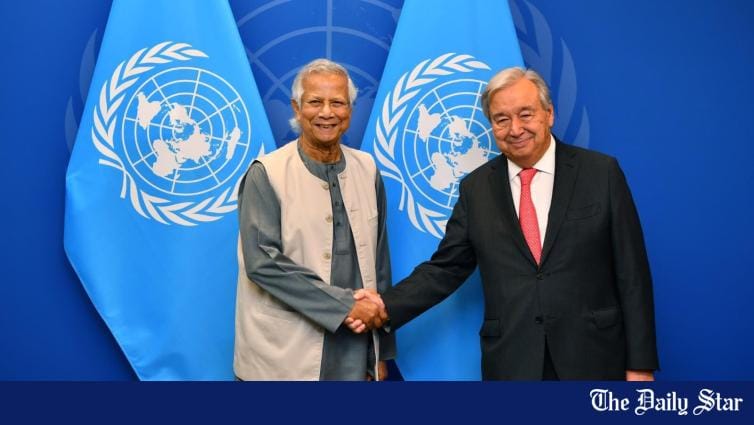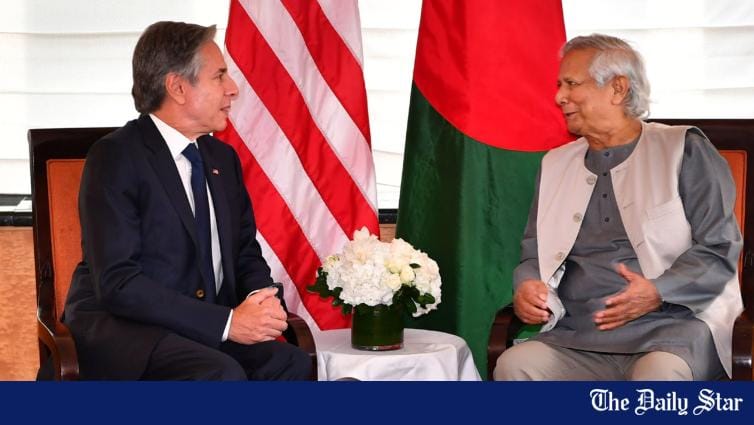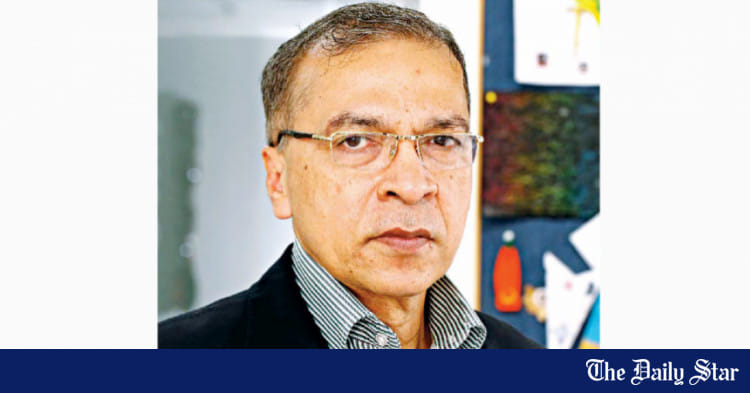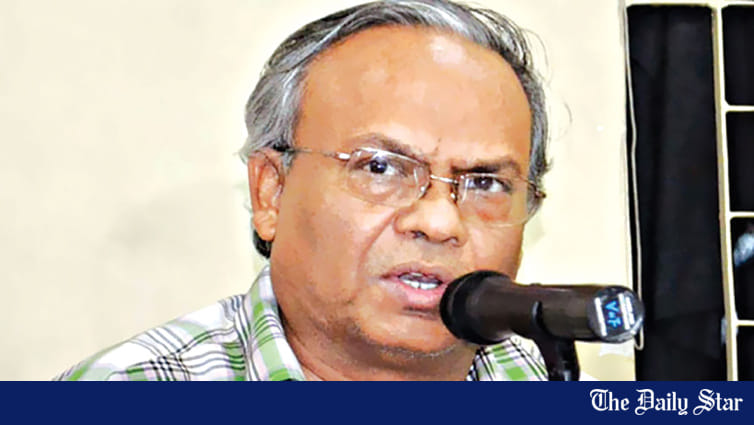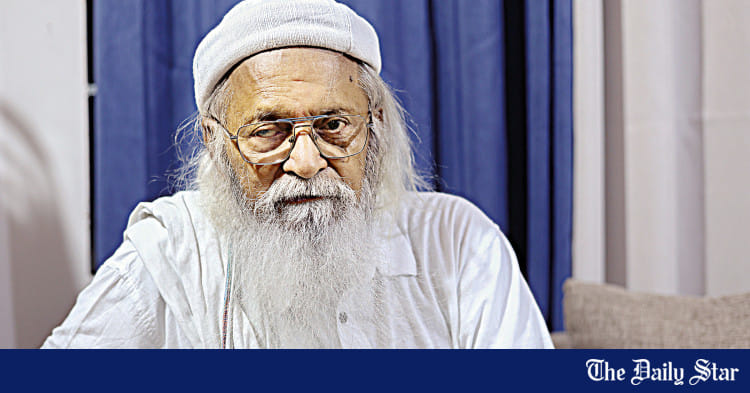Saif
Senior Operative
- 13,277
- 7,271
- Origin

- Axis Group

- Copy to clipboard
- Thread starter
- #57

IMF chief pledges support to Bangladesh’s reform initiatives
International Monetary Fund Managing Director Kristalina Georgieva has pledged support to Bangladesh's reform initiatives, saying the Washington-based lender has sent a team to Dhaka to hold talks with the stakeholders over the matter. The IMF managing director expressed her support at a mee
IMF chief pledges support to Bangladesh’s reform initiatives
BSS
Published :
Sep 25, 2024 12:42
Updated :
Sep 25, 2024 12:42

International Monetary Fund Managing Director Kristalina Georgieva has pledged support to Bangladesh's reform initiatives, saying the Washington-based lender has sent a team to Dhaka to hold talks with the stakeholders over the matter.
The IMF managing director expressed her support at a meeting with Chief Adviser Professor Muhammad Yunus at the UN headquarters in New York on the sidelines of the annual session of the United Nations General Assembly (UNGA) on Tuesday.
"It is a different country. It is Bangladesh 2.0," Kristalina Georgieva told the Chief Adviser when he gave a short briefing on the student-led mass uprising which ousted the previous autocratic regime.
During the meeting, Prof Yunus spoke about the six commissions that his interim government has set up to recommend vital reforms in election, civil administration, police, judiciary, anti-corruption and constitution.
He said the government would hold discussions with the political parties on the recommendations of the commissions.
Once the consensus on the reforms is reached and the voter list is prepared, and the date for the election will be announced, the chief adviser said.
The IMF chief executive extended her support for the initiatives, saying the lender would fast-track financial support for the Bangladesh government.
She said she sent an IMF team "quickly" to Bangladesh and it is in Dhaka at the moment. The team would place its report to the IMF management board next month, he added.
Georgieva said the IMF board could initiate a new lending programme for Bangladesh based on the report of the team, or it could also extend more lending under the existing support programme launched early last year.
Energy, power and transport adviser Fouzul Kabir Khan and eminent economist Dr Debapriya Bhattacharya attended the meeting.
Adviser Fouzul Kabir Khan told the IMF chief that the Bangladesh interim government took just a week to "dismantle the architecture of crimes" in the power and energy sector.
Dr Debapriya stressed the need for IMF support to bolster the country's balance of payments.
He said the role of the IMF would be critical to stabilising exchange rates.
BSS
Published :
Sep 25, 2024 12:42
Updated :
Sep 25, 2024 12:42
International Monetary Fund Managing Director Kristalina Georgieva has pledged support to Bangladesh's reform initiatives, saying the Washington-based lender has sent a team to Dhaka to hold talks with the stakeholders over the matter.
The IMF managing director expressed her support at a meeting with Chief Adviser Professor Muhammad Yunus at the UN headquarters in New York on the sidelines of the annual session of the United Nations General Assembly (UNGA) on Tuesday.
"It is a different country. It is Bangladesh 2.0," Kristalina Georgieva told the Chief Adviser when he gave a short briefing on the student-led mass uprising which ousted the previous autocratic regime.
During the meeting, Prof Yunus spoke about the six commissions that his interim government has set up to recommend vital reforms in election, civil administration, police, judiciary, anti-corruption and constitution.
He said the government would hold discussions with the political parties on the recommendations of the commissions.
Once the consensus on the reforms is reached and the voter list is prepared, and the date for the election will be announced, the chief adviser said.
The IMF chief executive extended her support for the initiatives, saying the lender would fast-track financial support for the Bangladesh government.
She said she sent an IMF team "quickly" to Bangladesh and it is in Dhaka at the moment. The team would place its report to the IMF management board next month, he added.
Georgieva said the IMF board could initiate a new lending programme for Bangladesh based on the report of the team, or it could also extend more lending under the existing support programme launched early last year.
Energy, power and transport adviser Fouzul Kabir Khan and eminent economist Dr Debapriya Bhattacharya attended the meeting.
Adviser Fouzul Kabir Khan told the IMF chief that the Bangladesh interim government took just a week to "dismantle the architecture of crimes" in the power and energy sector.
Dr Debapriya stressed the need for IMF support to bolster the country's balance of payments.
He said the role of the IMF would be critical to stabilising exchange rates.

